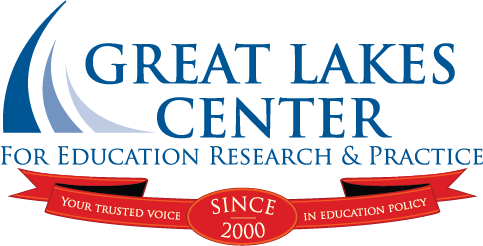
Think Twice Weekly Report
MAY 20, 2023 - MAY 26, 2023
The Think Twice Weekly Report compiles public education-related policy reports, research and articles of interest to policymakers, educators and stakeholders. This list is not exhaustive but is meant to highlight recent reports that may be used to support or undermine the work of our subscribers in supporting public schools. We encourage you to take a moment to scan these reports and determine if they may be used by policy makers to assist or erode your mission.
 Policy Reports
Policy Reports
Education Policy
Source: Heritage Foundation
Date: 5/22/2023
Education Freedom and Work Opportunities as Catalysts for Increasing the Birth Rate Among Married Couples
Pursuing new, commonsense approaches to education reform and work-family policies, from childcare and early education through higher education and workforce flexibility, will foster the conditions for family flourishing and increase birth rates for married couples. Affordable childcare from a variety of providers, including at-home options, access to high-quality K-12 education that reflects a family's values, a higher education landscape that provides numerous routes to upward mobility, and flexible work arrangements will give couples the confidence that they can have the number of children they desire. Public policy should support families as they form and grow, and can do so through reducing government regulatory overreach, directly funding students instead of institutions, and by removing barriers to a flexible workforce. Ultimately, these reforms will support couples as they raise their children to become productive members of a free society.
 Reports Reviewed
Reports Reviewed
GLC seeks to ensure that policy briefs impacting education reform are based on sound, credible academic research. Below are reviews conducted with GLC support.
Think Again: Do Charter Schools Drain Resources From Traditional Public Schools?
Source: Thomas B. Fordham Institute
Reviewed by: Huriya Jabbar, University of Texas at Austin
The report references most of the relevant literature and fairly assesses the evidence. However, it makes claims and policy recommendations that are untested empirically and unwarranted based on the research. For example, it concludes that districts' higher expenditures in a charter environment are due to policies protecting traditional public schools from revenue fluctuations caused by charter competition. In doing so, it fails to consider other possible explanations, such as charters strategically enrolling relatively few students who are particularly costly to educate.
 What We're Reading
What We're Reading
Research and articles that we want to highlight for subscribers as potential resources:
The Source Code: Revenue Composition and the Adequacy, Equity, and Stability of K-12 School Spending
By: Bruce D. Baker, Matthew Di Carlo, and Zachary W. Oberfield; Albert Shanker Institute
The Albert Shanker Institute has a new report that studies the sources of school funding, from local property tax to state tax collections, to determine what makes both equitable and stable school funding sources.
Teach Truth Day of Action June 10
By: Zinn Education Project
Learning for Justice is proud to once again co-sponsor the Teach Truth Day of Action coordinated by Zinn Education Project, Black Lives Matter at School and the African American Policy Forum. This year's day of action is set for June 10. We encourage educators, students, parents, caregivers and community members to rally across the country and pledge to teach truth and defend LGBTQ+ rights.
Several states look to roll back letter grading systems for schools
By: Anna Merod, K-12 Dive
Recent state legislative moves show momentum might be gaining to roll back grading systems in statewide accountability measures.
State Support for Civic Engagement
By: Charlie Thompson, Learning Policy Institute
This report From the Learning Policy Institute describes how 10 states are implementing policies that increasingly support a new approach to civics education that engages students in inquiry, civic reasoning, and civic action.
Ed Dept cracks down on book removal process by Georgia district
By: Naaz Modan, K-12 Dive
In one of the first settled cases of its kind, the U.S. Department of Education has found Georgia's Forsyth County Schools' process of removing library books discriminated against students based on sex and race, violating both Title IX and Title VI.
